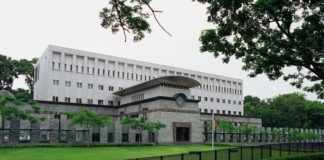Depending on which candidates are ultimately elected as mayor and city council members, Burlington could see some significant changes in policy in the coming years.
Based on their answers to this newspaper’s candidate questions, some of the 11 candidates intend to inaugurate striking revisions in municipal government.
Among the possible changes: an expanded number of city council seats (the current board is five members, comprised of a mayor and four council members); the possibility of establishing “wards” or districts for council membership; the establishment of an ordinance to prohibit discrimination based on sexual orientation; an additional focus on “affordable housing,” and a Covid-vaccination mandate for city employees.
Background on the newspaper questionnaire, introduction of the candidates for mayor (5) and city council (6): https://alamancenews.com/background-the-candidates-questionnaire-and-the-newspapers-coverage/
Mandatory Covid vaccination for city employees?
Now just a few weeks since President Joe Biden announced a mandatory vaccination requirement for federal employees, The Alamance News asked candidates whether they would support or oppose a similar mandatory vaccination policy for Burlington’s municipal employees.
Incumbent mayor Ian Baltutis and former county commissioner Bob Byrd voice support for the concept of mandatory vaccination for the city’s municipal employees.
Most other candidates – mayoral candidates Walter Boyd, Jim Butler, Caleb J. Massey and city council candidates Charlie Beasley, Wendy Jordan, Harold Owen, and Ronnie Wall – are opposed to the idea. Donna Vanhook did not indicate her position, and Dejuana Warren Bigelow refused to respond.
Meanwhile, the newspaper also asked each candidate for his or her own vaccination status.
Most assure the newspaper that they, are, in fact, already vaccinated, although Massey and Beasley provide no response, and Vanhook would not reveal her status, telling the newspaper, “That’s not your business.”
More city council seats? A “ward” system, perhaps?
Should Burlington’s five-member council be expanded? Candidates are divided on the subject, although those who favor the concept had a common response to how large the council should be: seven seats.
Those favoring an expansion are: Baltutis, Massey, Beasley, Byrd, and Owen. All favor a seven-seat council.
They are divided, however, about whether the council should adopt a “ward” (or district) system for election of some or all council members. Beasley and Owen, both of whom favor an expansion in the number of seats, do not support a district representation model.
Those who do are: Baltutis, Massey, and Byrd.
While some of North Carolina’s cities have adopted partisan elections, that option iss supported only by Massey, with all others preferring to keep the council elections non-partisan.
How much partisan politicking among non-partisan officials?
As to how much partisan politicking these non-partisan office-seekers may do if elected to a non-partisan post, candidates have varying views.
“We should not engage in partisan policies issues as it could (and has) damaged our reputation with other municipalities and our state legislative body. The city is a service provider to the taxpayer/citizen and we should represent ourselves with political neutrality so collaboration and cooperation is welcomed.” – Burlington city councilman and mayoral candidate Jim Butler
Butler, who as a member of the city council, has criticized the current mayor’s involvement in partisan issues is among the most direct in stating his view: “We should not engage in partisan policies issues as it could (and has) damaged our reputation with other municipalities and our state legislative body. The city is a service provider to the taxpayer/citizen and we should represent ourselves with political neutrality so collaboration and cooperation is welcomed.”
Boyd says, “The mayor of Burlington should not become involved in partisan politics, either during the election or while in office.”
Jordan says, “Council members should limit their involvement to the issues and needs of the citizens of Burlington.”
While stating it to be an individual decision, Owen reveals that he is an unaffiliated voter and says he does not “get personally involved in partisan elections or politics.”
Wall also says he would not be involved in partisan elections and/or partisan political issues. “The services that cities provide are not party affiliated.”
Baltutis, for his part, emphasizes, “By statute, the ‘non-partisan’ limit only applies to party affiliation on the voting ballot. I believe that political parties provide important organizational value to our American Democracy and I am a member of them. At their best, they seek to ensure good collaborative conversation and representation for marginalized voters.”
Ban discrimination based on sexual orientation?
About ten North Carolina cities and counties have adopted ordinances earlier this year that seek to ban discrimination within their jurisdictions based on sexual orientation (i.e., lesbian, gay, bisexual, transgender and queer people) in public accommodations and employment.
Candidates are divided on whether Burlington should adopt a similar ordinance. Baltutis, Boyd, Massey, Vanhook, Beasley, and Byrd say they think Burlington needs such an ordinance.
Among those who support the concept, all say they would personally vote for such an ordinance if elected. Boyd qualifies that position by saying, “It would depend on the language of such an ordinance and whether it adequately addresses the issue.”
Butler, Jordan, and Wall are opposed to such a municipal non-discrimination ordinance. Owen says the issue is one for the state or federal government to resolve, and should not be decided at the local level.
Should city pay to address “affordable housing”?
Several candidates and current city council members have started talking more and more about the issue of “affordable housing” in Burlington and whether the city could and should do something to address it.
The newspaper asked candidates whether they are willing to start spending city tax dollars to have the city become more involved in the issue. Baltutis, Byrd, and Owen say they are willing.
But when asked whether they would be willing to support an increase in property taxes, if necessary, to support the issue, all three say they would not.
Race relations in Burlington
Candidates had widely diverging views on the status of race relations in Burlington.
Baltutis is among the most critical, taking one of several jabs he takes in his questionnaire responses at fellow council members. “Burlington’s marginalized residents and neighborhoods have suffered neglect by previous city councils and managers including some current city council members,” he says. “The community development work of my past 3 terms has begun to rebuild and repair that damage and relations.”
“In many respects, Burlington remains a segregated city and residents of East Burlington believe they are being ignored and not adequately served by the city.” – Burlington mayoral candidate Walter Boyd
Boyd says, “In many respects, Burlington remains a segregated city and residents of East Burlington believe they are being ignored and not adequately served by the city.”
Vanhook says, “The racial climate in Burlington is no different than it is in the United States right now.”
Others are more upbeat or optimistic. Says Butler, “There are many areas of the city that need continuous improvement and racial issues are no different. Overall, we have many positive attributes, more so than most other municipalities. “
The comparison to other cities is also a theme in Wall’s comments. “Improvement can take place in all areas. Overall, Burlington is much more stable than others.”
Byrd is perhaps the most succinct, “There is room for improvement.”
Police funding, possible substation
Another issue where candidates have divergent views is over funding for the city’s police department.
Candidates were asked whether they would support more, less, or about the same funding for the city’s police department.
Baltutis and Byrd say “the same,” while most other candidates prefer “more” funding.
Perhaps not surprisingly, Jordan, herself a former police officer, is among the most supportive of additional funding for law enforcement efforts, which she thinks can be achieved within overall spending constraints. “The police department will need additional funding to add officers to address rising crime rates. However, I do not feel taxes will need to be increased to achieve this goal. The current tax rate is adequate to address the city’s current needs.”
Wall also advocates more attention toward “public safety,” broadly, supporting “better wages, improved recruitment and retention of police officers, and redirect more of its current budget to essential services.”
Candidates were also asked about an idea recently broached by Alamance County sheriff Terry Johnson. During a recent press conference dealing with a spate of shootings across the county, particularly in east Burlington, Johnson suggested that Burlington should consider establishing a police sub-station on the east side of the city. He also volunteered that he would contribute two deputies to being a part of the staffing there.
Most candidates favor the sheriff’s sub-station concept. Baltutis is opposed. Byrd demurs, saying, “I would want to know the wishes of the community and pros/cons.”
Vanhook is critical of this question and others aspects of addressing issues in East Burlington. “The questions about East Burlington in this questionnaire are loaded and not constructive,” she says.
Miscellaneous positions, comments
All candidates express general support for paying economic incentives in order to attract industry to Burlington – although Vanhook says she is “neutral” on the subject.
Most say they would also support economic incentives to keep existing industries in Burlington (Vanhook is also neutral on that topic), but Boyd says he would oppose the idea of incentives in that case.
Most candidates are generally comfortable with the current state of the city’s bus service, and not troubled by the council’s action to eliminate fares for riding.
Boyd is somewhat of a dissenter on the topic, pointing out, “Based on what I have seen, the bus system does not appear to be widely used.” He also questions its long-term viability. “I am not certain that the bus system is financially sustainable as it is presently organized.”
All candidates were asked an open-ended question about their area of strongest disagreement with actions taken by the city council in the past 2-5 years. Three candidates single out the Maple Avenue redevelopment project that’s behind a grant request that the council rescinded this week. [See separate story in this edition.]
Grant application for Maple Avenue project withdrawn on 3-2 vote by city council: https://alamancenews.com/council-votes-3-2-to-rescind-grant-application-after-businessmans-objection-to-median-in-front-of-his-business/
Butler, Boyd, and Jordan list the issue as one of those significant areas of disagreement. “The city should shift its focus to North Church Street instead,” Boyd recommends.
Jordan says, “Before we begin beautification, we need to clean up the run-down hotels that probably do not meet city code. In other words, work inside out.”
“I disagree with our city council’s desire to move at a bureaucratically slow pace. Economic trends have given us the opportunity to make crucial investments in our city that will drive prosperity if we are brave and decisive enough to act. Jim Butler and Harold Owen are not brave enough.”
– Burlington mayor Ian Baltutis
Baltutis uses the question to take a shot at two of his council colleagues, including mayoral challenger Butler. “I disagree with our city council’s desire to move at a bureaucratically slow pace. Economic trends have given us the opportunity to make crucial investments in our city that will drive prosperity if we are brave and decisive enough to act. Jim Butler and Harold Owen are not brave enough,” Baltutis concludes.
Candidate biographies, as supplied by the candidates, begin on page 4. Answers to the newspaper’s questions about city issues begin on page 5.
For complete list of questions and answers from this week’s edition of The Alamance News, click HERE
For other Burlington election coverage, see these stories:
Background on the newspaper questionnaire, introduction of the candidates for mayor (5) and city council (6): https://alamancenews.com/background-the-candidates-questionnaire-and-the-newspapers-coverage/
Biographical information on the candidates: https://alamancenews.com/biographical-information-on-burlington-mayoral-and-city-council-candidates/
Campaign finance reports reveal money pouring into Burlington campaigns: https://alamancenews.com/donations-pour-into-campaigns-for-burlington-municipal-races/
Mayor concerned about proliferation of political signs — both in city right-of-ways and on city properties, such as parks: https://alamancenews.com/mayor-campaign-signs-proliferate-on-city-property-rights-of-way/








